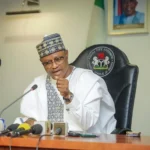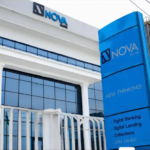Recently, I received an intriguing call from Dennis Agbo, a journalist acquaintance from the Enugu bureau of the Vanguard Newspaper. He sought my views on the pressing priorities facing the new leadership of Ohanaeze Ndigbo and what actions are urgently needed to advance the interests of the Igbo people.
These questions have been on my mind for quite some time, and I’ve shared my thoughts informally on various occasions and platforms. However, Dennis’s inquiry prompted me to organize my reflections more systematically. Discussing the challenges and potentials of the Igbo community is always thought-provoking, and Ohanaeze Ndigbo, as our multi-functional representative organization, holds even greater complexity. It has the crucial task of not only representing our cultural identity but also driving meaningful change that exceeds what we’ve seen in the past.
LET’S START WITH SOME BACKGROUND
Ohanaeze Ndigbo is the apex socio-cultural organization that represents the interests and aspirations of the Igbo people. With its membership and influence spanning across Nigeria and the diaspora, the organization plays a critical role in articulating the collective voice of Ndigbo, promoting their culture, and advocating for their rights, whilst also prompting them to live up to their responsibilities. As Nigeria continues to navigate complex ethno-cultural and socio-political dynamics, the recent emergence of new leadership within Ohanaeze Ndigbo, led by Sen. Azuta Mbata, comes at a pivotal time. They face numerous challenges and responsibilities that are essential for the progress of the Igbo nation, whose geography spans across seven states and includes large chunks of lands in four others with an over 70 million population across the globe. This essay takes a look at various dynamics within the organisation and amongst Ndigbo and explores the major tasks before the new leadership, in no particular order, and outlines urgent actions required to propel Ndigbo forward.
ESSENCE AND PURPOSE OF OHANAEZE
The term “Ohanaeze” is derived from two Igbo words: “Oha,” which denotes the people, and “Eze,” meaning rulers, leadership, or keepers of our collective heritage. The “na” in between signifies the bond that links the two components, creating a powerful reminder of the interdependence between the people and their leaders. This symbiotic relationship underscores the spirit and essence of Ohanaeze Ndigbo—it exists not only to provide leadership but also to ensure that the cultural and collective heritage of the Igbo people is preserved and championed.
The primary purpose of Ohanaeze extends beyond mere representation. It is to cultivate a balanced approach whereby leaders serve the people, and the people actively engage with their leaders and communities. The organization aims also to foster a sense of responsibility among leaders while empowering the populace to responsibly and responsively take ownership of their destiny. The integrity of this relationship is crucial; there can be no kings without people, and no people can truly function effectively without visionary and engaging leadership.
However, recent times have witnessed a growing conflict and chasm between the “Ọha” and the “Eze,” leading to a deterioration of values, focus, and collective direction. This discord is evident in the disconnection between the leadership and the grassroots, resulting in a loss of faith among many people in their leaders.
REBUILDING THE SYMBIOTIC RELATIONSHIP
With these challenges in mind, the new leadership of Ohanaeze must recognize that their foremost task is to rebuild this vital symbiotic relationship. They must work diligently to draw from the cacophony of conflicting ideas within the community, forging a focused agenda that resonates with the aspirations of all Ndigbo. Unity and collaboration should be the guiding principles in this endeavor, ensuring that the voices of the people are adequately represented in decision-making processes.
A critical demographic that must be included in these conversations is the youth, who constitute over 60% of the Igbo population today. It is essential that they are afforded a visible seat at the table, given their potential to drive innovation and change within the community. Engaging the youth is not merely a matter of inclusion; it is about harnessing their energy and creativity to shape a more prosperous future.
In tandem, the participation of women should be a priority. For too long, women have remained on the periphery of the leadership landscape within the Igbo society. The new leadership must ensure that women are not just observers but key contributors to the collective conversation. Promoting women into critical leadership roles will enrich the dialogue and allow for a more comprehensive understanding of the challenges faced by the Igbo community.
RE-ESTABLISHING DIALOGUE AND UNITY AMONG IGBO LEADERS
One of the foremost tasks for the new leadership is to foster dialogue and unity among the diverse factions within the Igbo community. Over time, political divisions and differing ideologies have created rifts that impede collective progress. The new leadership should organize conferences, seminars, and round-table discussions that bring together political, traditional, cultural, entrepreneurial, Business, Entertainment, Academic, professional, Religious, Creative and Innovative leaders to address our common challenges.
The goal would be to create a unified front that can effectively advocate for Igbo interests at both local, state, national and international levels. The Unity I speak of, is not merely a political necessity; it embodies the entirety of the cultural heritage of Ndigbo, emphasizing the importance of communal strength. By promoting inter-group collaboration, Ohanaeze can restore trust and cohesion among the Igbo people.
ADVOCACY FOR POLITICAL REPRESENTATION
Another critical task is advocating for increased political representation and participation of the Igbo in Nigerian politics and political spaces. Historically, Ndigbo have faced marginalization in all spheres, but most especially in the political spheres, leading to a significant underrepresentation in key political offices. The new leadership must push for practical policies, initiatives and appropriate approaches that ensure the Igbo have a voice in legislative processes, local governance, and national decision-making.
This MUST include the establishment of mentorship programs for young Igbo politicians and advocacy for Electoral consciousness which leads to reforms that allow for fair representation for all. By doing so, Ohanaeze can then be able to breed, blood and empower a new generation of leaders who will carry the Igbo agenda forward and ensure that the concerns of the community are adequately addressed.
ECONOMIC DEVELOPMENT INITIATIVES
To move ala Igbo forward, the new leadership must prioritize economic development initiatives. The Igbo are traditionally known for their entrepreneurial spirit, but the current economic climate poses significant challenges. The leadership should explore partnerships with government agencies and private sector players to increase investments across Igboland and create job opportunities and support local businesses.
Supporting and entrenching the Alaigbo Investment fund, set up by the Nwodo administration and led by Prof. Ogbu specifically for Igbo development and technological advancement, whilst also attracting serious entrepreneurs can stimulate economic growth. Additionally, promoting vocational training and skills development programs will equip the youth with necessary competencies, fostering self-reliance and reducing unemployment rates. Economic empowerment, through the serious promotion of the AKU RUO ỤLỌ drive, is crucial for advancing the Igbo community and enhancing their overall quality of life.
CULTURAL PRESERVATION AND PROMOTION
Cultural identity is paramount to the Igbo people, and the new leadership should actively engage in the preservation and promotion of Igbo heritage. Every Igbo speaking man or woman, irrespective of his or her dialect, location and religion must be made to feel igbo anywhere they may reside. This includes reviving traditional festivals, supporting indigenous arts and crafts, and encouraging the teaching of the Igbo language in schools.
Organizing cultural exchange programs and festivals can raise awareness and appreciation for Igbo heritage, not only within Nigeria but also globally. Emphasizing the cultural richness of Ndigbo will foster a sense of pride among the youth and the many who still feel too distant and disconnected to accept their identity, ensuring that traditions and values are passed down through generations.
ADDRESSING SECURITY CONCERNS
In recent years, security has become a pressing issue in Nigeria, affecting various regions, including the southeast. The new leadership must actively engage with security agencies and local communities to address the unique security challenges faced by Ndigbo.
Establishing neighborhood watch groups and fostering partnerships with law enforcement can enhance community safety. Additionally, the leadership should advocate for policies that protect the interests of Ndigbo in conflict resolutions, thereby ensuring that their voices are heard in matters of security and justice.
ENHANCING COMMUNITY HEALTH AND WELLBEING
Ohanaeze’s mission to uplift the Igbo community should include a strong focus on health and wellbeing, as these are the cornerstones of a thriving society. The challenges brought to light by the COVID-19 pandemic, particularly in rural areas, underscore the need for improved healthcare access and social support.
Recognizing that Ohanaeze, given its setup and structure, cannot tackle these challenges alone, it should act as a vital middle person. By leveraging its local chapters as engagement points, Ohanaeze can ensure that government plans and programs reach our communities effectively.
To make a tangible impact, Ohanaeze can initiate partnerships with healthcare organizations, NGOs, and local clinics to bring medical services closer to the people. This could involve setting up mobile health clinics that travel to underserved areas, providing essential medical care and screenings.
Additionally, launching community health education programs can empower individuals with knowledge about preventive care and healthy living. Workshops, seminars, and informational campaigns can be organized to teach people about nutrition, hygiene, and disease prevention.
Ohanaeze should also engage with our professionals and the Diaspora to ensure that the dividends and benefits of these initiatives reach those who need them most. By collaborating with local governments and international donors, Ohanaeze can advocate for the establishment of community health centers equipped with basic medical facilities.
Through these practical steps—engaging with health organizations, educating the community, and advocating for local health centers—Ohanaeze can play a pivotal role in enhancing the quality of life for the Igbo people.
ENGAGING THE DIASPORA
The Igbo diaspora is arguably the largest and wealthiest in Africa, and plays a crucial role in the development of the Igbo nation. The new leadership should actively engage and mobilize the expatriate community to contribute to various causes, from economic investment to cultural preservation.
Creating platforms for diaspora engagement will enable the community to leverage international connections and resources. Initiatives such as diaspora-driven development projects and collaboration with international organizations can harness global
THE IPOB AND THE PERENNIAL OHANAEZE FUNDING ISSUES
The challenges surrounding the Indigenous People of Biafra (IPOB) and Nnamdi Kanu have been polarizing issues for the leadership of Ohanaeze and Ndigbo. Previous administrations often took a tentative approach, sidestepping direct engagement with these contentious subjects in favor of political stability and external alliances. However, this avoidance has led to a perception of ineffectiveness and a lack of unity among the Igbo populace. The unfortunate outcome of these past strategies has been a fragmentation of the community, where many members feel their voices regarding sovereignty and self-determination are either ignored or dismissed.
The Mbata Team must approach the IPOB and Nnamdi Kanu issues with caution yet be willing to engage in sincere dialogue. Acknowledging IPOB as an integral component of the Igbo narrative is critical. This means fostering a transparent conversation that allows the community to voice concerns, aspirations, and grievances openly. Importantly, these dialogues should not be limited to mere political rhetoric but should aim at fostering understanding and addressing the root causes of discontent. By actively engaging with IPOB and its leadership, the Mbata Team can attempt to bridge the gap between different factions of the Igbo nation, thereby promoting a sense of cohesion that has been lacking in recent years.
SUGGESTIONS FOR ENGAGING WITH IPOB AND NNAMDI KANU
1. Initiate an Inclusive Dialogue: Organize private and open town hall meetings that include all factions, including IPOB representatives. This creates a platform for open discussions without the fear of retribution, allowing members of different groups to share their perspectives openly.
2. Emphasize Common Goals: Focus on shared objectives that unite the Igbo people rather than divide them. Highlight themes such as economic empowerment, cultural reintegration and preservation, and community development that resonate across various groups within the Igbo community.
3. Promote Peaceful Advocacy: Work towards transforming the narrative around IPOB from one of violence to peaceful advocacy. Encourage discussions centered on peaceful means of addressing grievances, presenting them as legitimate expressions of a community’s desire for recognition and development.
FUNDING CHALLENGES AND UNIQUE SUGGESTIONS FOR THE MBATA TEAM
Funding has historically been a significant challenge for Ohanaeze, undermining its ability to effect change. Generational leadership from Ozobu to Ozichukwu has faced difficulties in mobilizing consistent financial support from the Igbo populace. The reliance on sporadic donations has not provided the sustainability needed for robust community initiatives.
The Mbata Team must consider innovative funding models that appeal to a broader audience. The proposed idea of a “100 Naira a Day” initiative serves as an excellent starting point, as it democratizes contributions and makes financial support accessible to all, regardless of their economic standing.
IMPLEMENTATION SUGGESTIONS:
1. Create a Digital Platform for Contributions: Leverage technology by launching an online portal where contributors can easily donate their daily N100. This platform could also provide updates on how funds are being utilized to foster transparency and build trust within the community.
2. Establish a Community Engagement Campaign: Launch a campaign that emphasizes the importance of collective contributions for communal development. Utilize compelling storytelling to illustrate how even small contributions can lead to significant impacts, thereby fostering a sense of shared ownership and responsibility.
3. Partner with Local Businesses and Global Diaspora: Collaborating with local businesses to match community contributions can double the impact. Additionally, outreach programs targeting the global Igbo diaspora can encourage them to contribute consistently, reinforcing their connection to their homeland.
4. Financial Literacy Programs: Implement programs educating the Igbo people about the significance of funding community initiatives and how even small contributions can lead to collective change over time. This could empower individuals to see the value of participation in funding Ohanaeze’s activities.
Confronting the challenges of IPOB and funding head-on with open-mindedness, community engagement, and innovative financial strategies can help the Mbata Team lead Ohanaeze to a new era of credibility and effectiveness. Emphasizing collaborative solutions and sustained dialogue will not only enhance unity among the Igbo people but fortify the organization’s role as a vital advocate for the community’s aspirations.
To truly revitalize Ohanaeze Ndigbo, it is essential to reconnect the organization with the grassroots. Back in the early 2000s, during the tenure of Justice Eze Ozobu as the President, Ohanaeze implemented a rotating meeting system across the various states of Ohanaeze, which effectively fostered a sense of inclusion and belonging. These gatherings spanned from Friday to Sunday, with host states providing vibrant local entertainment, often supported by both government bodies and local individuals who offered accommodations and venues. Fridays were reserved for Executive meetings, Saturdays saw the meeting of Ime Obi to review issues presented by the Executive, and Sundays concluded with the General Assembly ratifying decisions. This structured system worked seamlessly, allowing us to hold meetings in diverse locations such as Abakaliki, Umuahia, Owerri, Awka, Asaba, and Port Harcourt, without neglecting the central hub of Enugu.
Those who closely followed Ohanaeze during those years often reminisce about them with deep nostalgia. I particularly remember two meetings in Abakaliki and Asaba, where our esteemed elder Chief Francis Ellah who was Ozobu’s deputy arrived much earlier than everyone, having traveled all the way from Port Harcourt, often before attendees from nearby areas. Such was the level of commitment and enthusiasm these gatherings inspired.
I urge the new leadership to embrace this legacy and re-establish Ohanaeze’s deep connection with the broader Igbo community. The General Assembly, as the highest decision-making body according to Ohanaeze’s Constitution, symbolizes the wisdom of our founding fathers, who recognized that true power resides with the people. By reinforcing this connection, the new leaders can effectively engage with Igbos everywhere, rekindling the communal spirit and passion that once defined our meetings.
This approach will not only strengthen Ohanaeze’s position but also empower the Igbo people by ensuring their voices and aspirations are integral to the organization’s mission. In doing so, the leadership will foster a renewed sense of unity and collective purpose, driving forward meaningful progress for the Igbo community as a whole.
In conclusion, the emergence of Mbata as the new leadership of Ohanaeze Ndigbo heralds a pivotal opportunity to reshape the organization’s vision and impact. Despite the divisive rancor that has historically challenged unity within the Igbo community, there is a renewed enthusiasm and goodwill among Ndigbo that cannot be overlooked. This is a moment ripe for harnessing collective energy and channeling it toward constructive dialogue and transformation. The Mbata team must embrace the current momentum with courage and decisiveness, addressing pressing challenges while fostering an atmosphere of inclusivity and progress. By doing so, they can not only mend divides but also propel the Igbo people toward a brighter future—one marked by cultural renaissance, economic empowerment, and socio-political influence. It is imperative that they move forward with strategic intent, capitalizing on this wind of change to create lasting legacies that echo through generations.


























